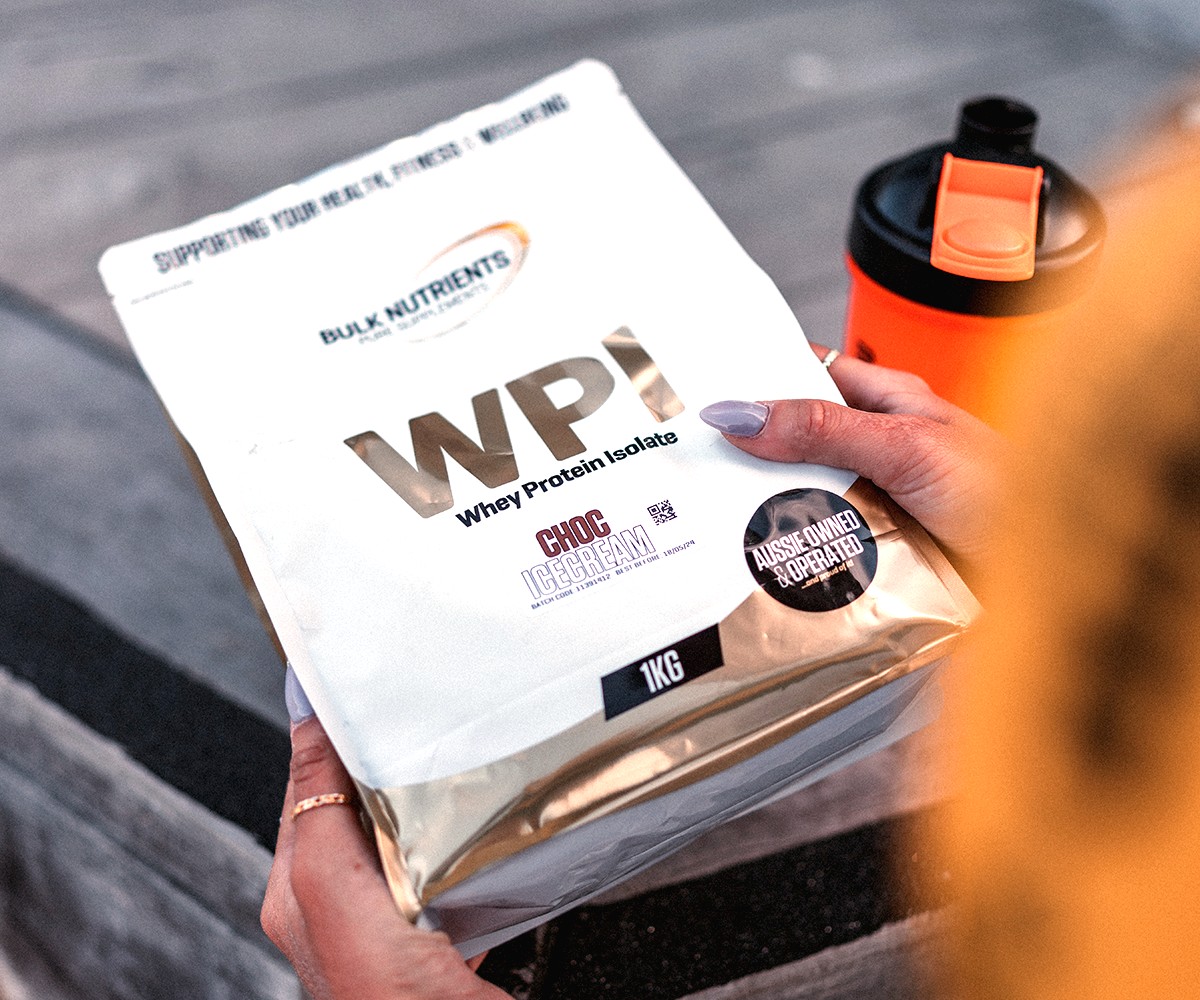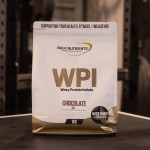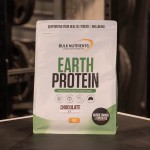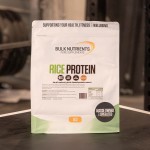Whey Protein vs Plant Protein

Whey protein vs plant protein: these two sources of protein have long been the subject of debate among fitness enthusiasts and health-conscious individuals.
As more people adopt a plant-based lifestyle or simply look for alternative protein sources, it's important to understand the differences and benefits of each.
In this guide, we’ll take a look at the key distinctions between vegan protein powder and whey, addressing common questions such as "is plant protein better than whey protein?" and "is whey protein vegan?"
To help you make an informed decision about which protein source is best for your needs and lifestyle, we'll dive into the specifics of each type of protein, discussing their amino acid profiles, digestibility, and potential health benefits.
By the end, you'll have a better understanding of the whey protein vs. plant protein debate, empowering you to choose the right supplement for you!
What is Whey Protein Made of?
Whey protein is derived from milk and is a complete protein source, containing all nine essential amino acids your body needs to function properly.
It is particularly rich in branched-chain amino acids (BCAAs), which play a crucial role in muscle growth and repair [1].
So, if you’re wondering if whey protein powder is vegan, the answer is no: Because whey protein powder is derived from milk, it isn’t suitable for vegans.
But for our vegan friends, no need to worry! There are a range of plant-based proteins that will suit your diet and give you that muscle-building boost you’re looking for.

What is Plant Protein Made of?
Plant protein, on the other hand, comes from various sources such as peas, rice, soy and earth (pea, fava bean & rice blend).
While some plant proteins are complete, others may be lacking in one or more essential amino acids.
However, by combining different plant protein sources, it's possible to create a complete amino acid profile and get the same benefits as whey protein [2].

Is Plant-Based Protein Powder Better Than Whey Protein?
Unfortunately, there’s no one-size-fits-all answer to this question.
When it comes to whey protein powder vs plant protein powder, the best option for you will be the one that meets your dietary needs, lifestyle and goals.
Let’s take a look at the three most important factors that contribute to a protein powder’s efficacy.
Digestibility
Whey protein is generally considered to be more easily digestible than plant protein.
This is because whey protein has a higher biological value (BV) than most plant proteins, meaning your body can use it more efficiently [3].
However, some plant proteins, like soy, have a BV comparable to whey, making them a viable alternative for those seeking easily digestible plant-based options [4].

Health Benefits
Whey protein has been widely researched and is known for its ability to promote muscle growth, support recovery, and aid in weight management [5].
It also contains bioactive peptides that can support immune function and promote overall health [6].
Plant protein offers numerous health benefits as well.
Research suggests that consuming plant-based proteins may lower the risk of heart disease, support weight management, and contribute to overall health due to their high fibre and nutrient content [7].
Additionally, plant proteins are often hypoallergenic and suitable for those with lactose intolerance or dairy allergies.

Environmental Considerations
One aspect that may influence your decision is the environmental impact of each protein source.
Producing plant protein typically requires fewer resources, such as water and land, and generates fewer greenhouse gas emissions compared to whey protein [8].
As a result, opting for plant protein may be more sustainable and environmentally friendly than whey protein.
Whey Protein vs Plant Protein: Take Your Pick
Ultimately, the choice between whey vs plant protein depends on your individual needs, preferences, and dietary restrictions.
Both sources can provide the necessary amino acids, support muscle growth, and offer health benefits.
If you’re lactose intolerant, vegan, or simply seeking a more sustainable option, plant protein may be the better choice for you.
However, if you prioritise quick digestibility and a high biological value, whey protein may be more suitable.
Regardless of your choice, it's essential to select a high-quality supplement and ensure you consume enough protein to support your training and recovery goals.
Ready to incorporate protein powder into your diet? Explore our range of whey and plant proteins.

Meet Mason! He's on the Marketing Team here at Bulk Nutrients and is an amateur basketball player who loves the game.
He's tried many supplements to help him on the court and in general health.
More about Mason BrezinscakReferences:
- Devries, M. C., & Phillips, S. M. (2015). Supplemental protein in support of muscle mass and health: advantage whey. Journal of Food Science, 80(S1), A8-A15. https://pubmed.ncbi.nlm.nih.gov/25757896/
- Gorissen, S. H., & Witard, O. C. (2018). Characterising the muscle anabolic potential of dairy, meat and plant-based protein sources in older adults. Proceedings of the Nutrition Society, 77(1), 20-31. https://pubmed.ncbi.nlm.nih.gov/28847314/
- Hoffman, J. R., & Falvo, M. J. (2004). Protein – Which is Best? Journal of Sports Science & Medicine, 3(3), 118-130. https://www.ncbi.nlm.nih.gov/pmc/articles/PMC3905294/
- Hughes, G. J., Ryan, D. J., Mukherjea, R., & Schasteen, C. S. (2011). Protein digestibility-corrected amino acid scores (PDCAAS) for soy protein isolates and concentrate: Criteria for evaluation. Journal of Agricultural and Food Chemistry, 59(23), 12707-12712. https://pubmed.ncbi.nlm.nih.gov/22017752/
- Hulmi, J. J., Lockwood, C. M., & Stout, J. R. (2010). Effect of protein/essential amino acids and resistance training on skeletal muscle hypertrophy: A case for whey protein. Nutrition & Metabolism, 7(1), 51. https://pubmed.ncbi.nlm.nih.gov/20565767/
- Zemel, M. B., & Sun, X. (2008). Dietary calcium and dairy products modulate oxidative and inflammatory stress in mice and humans. The Journal of Nutrition, 138(6), 1047-1052. https://pubmed.ncbi.nlm.nih.gov/18492832/
- Satija, A., & Hu, F. B. (2018). Plant-based diets and cardiovascular health. Trends in Cardiovascular Medicine, 28(7), 437-441. https://pubmed.ncbi.nlm.nih.gov/29496410/
- Smetana, S., Mathys, A., Knoch, A., & Heinz, V. (2015). Meat alternatives: life cycle assessment of most known meat substitutes. The International Journal of Life Cycle Assessment, 20(9), 1254-1267. https://www.researchgate.net/publication/279514998_Meat_Alternatives_Life_Cycle_Assessment_of_Most_Known_Meat_Substitutes
Related Blogs

The Ultimate Guide to Bulk Nutrients' Protein Water!
Posted by Ebony Abblitt
Estimated reading time: 6 minutes

Whey Protein Isolate vs Concentrate: A Detailed Comparison
Posted by Mason Brezinscak
Estimated reading time: 8 minutes

How Is Protein Quality Measured?
Posted by Dayne Hudson
Estimated reading time: 6 minutes
































